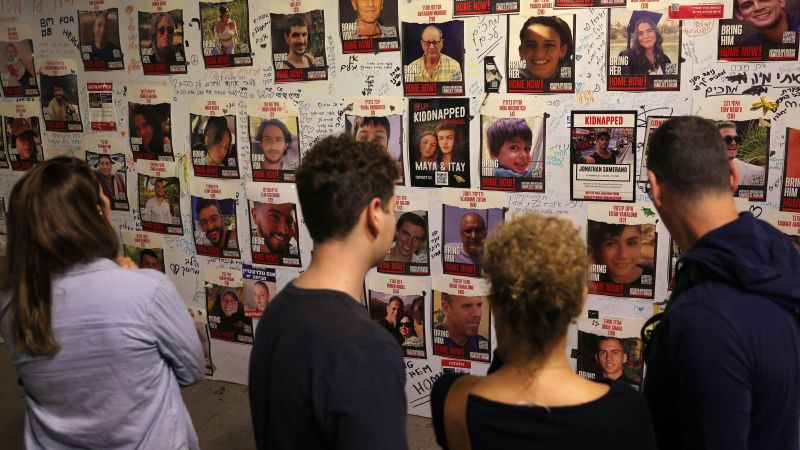Israel and Hamas have reached an agreement, with a four-day ceasefire and the release of at least 50 women and children who are held captive in Gaza. This development comes after a lengthy period of conflict and humanitarian crisis. The deal, outlined by chief negotiator Qatar in a statement, involves Hamas releasing hostages in exchange for Palestinian women and children detained in Israel.
The ceasefire will also allow for an increased number of aid convoys to provide relief to Gaza, according to the statement. The specific start time of the ceasefire will be announced within the next 24 hours, and Minister of State Mohammed Al-Khulaifi hopes that this agreement will spur further diplomatic progress.
The families of those held captive have reacted with both relief and anticipation. International leaders have also welcomed the deal, expressing their hope that it could lead to a lasting peace. According to a report from the Israeli military, there are 239 hostages being held by Hamas in Gaza, including individuals from 26 different countries.
The mass abductions occurred in a coordinated attack that resulted in a substantial number of casualties. Israel responded by declaring war against Hamas and implementing a blockade of Gaza. Additionally, thousands of people have been killed in Gaza since the start of the conflict.
Negotiations involving the United States and Egypt paved the way for this agreement, which was approved by Israel following a marathon cabinet meeting. Israel has also hinted at the possibility of extending the ceasefire beyond the initial four days, contingent upon further hostage releases. The ceasefire is intended to allow for the safe release of the captives, with the possibility of a second phase for additional prisoner exchanges.
Despite the lack of clarity surrounding the release details, the agreement has provided hope to the families of the hostages. USDA Senor officials believe that the deal could result in the release of additional American hostages held in Gaza. The list of prisoners set to be released includes some individuals with dual nationalities, and according to Israeli officials, those to be released are not considered serious offenders.
The overall goal of the deal is to create a humanitarian pause in the ongoing conflict, allowing for the safe return of hostages and the delivery of much-needed humanitarian aid. Additionally, the potential for further phases of exchange is seen as a positive step towards long-term peace in the region.


